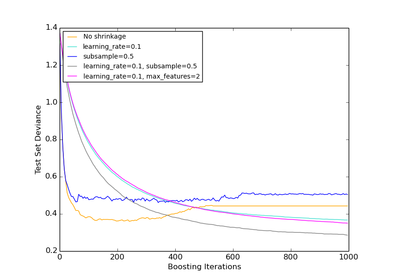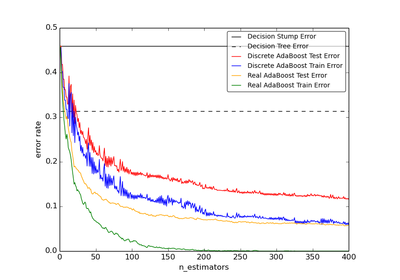sklearn.datasets.make_hastie_10_2¶
- sklearn.datasets.make_hastie_10_2(n_samples=12000, random_state=None)¶
Generates data for binary classification used in Hastie et al. 2009, Example 10.2.
The ten features are standard independent Gaussian and the target y is defined by:
y[i] = 1 if np.sum(X[i] ** 2) > 9.34 else -1
Parameters: n_samples : int, optional (default=12000)
The number of samples.
random_state : int, RandomState instance or None, optional (default=None)
If int, random_state is the seed used by the random number generator; If RandomState instance, random_state is the random number generator; If None, the random number generator is the RandomState instance used by np.random.
Returns: X : array of shape [n_samples, 10]
The input samples.
y : array of shape [n_samples]
The output values.
References
[R17] T. Hastie, R. Tibshirani and J. Friedman, “Elements of Statistical Learning Ed. 2”, Springer, 2009.



